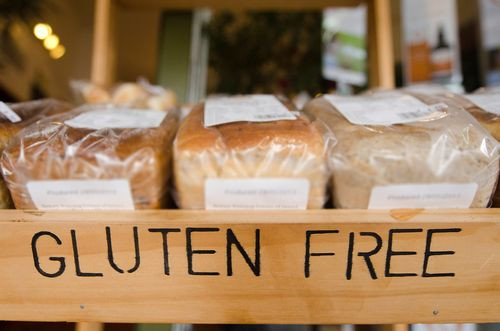'Gluten-Free' Food Labels May Deceive Consumers As Healthy: Is The Fad Dangerous?

Food labels can shape our perception of how we view products. Buzzwords like “gluten-free,” “natural,” “wholegrain,” and “antioxidant” have misguided customers into thinking they are buying a healthier food with some implied health benefit. While consumers have become aware of the need to choose healthier options, a recent study published in the Journal of Nutrition Education and Behavior has found dieters who consume gluten-free foods (without a wheat sensitivity), actually miss out on vital nutrients in exchange for unsupported claims of weight loss and healthier skin.
The belief that consuming gluten-free foods will lead to certain health benefits is not entirely based on research. The Internet has played a pivotal role in influencing consumers’ food choices by providing a variety of claims and convictions. "If I’m a college student, and I want to lose weight, and I read on the Internet that a gluten-free diet is the way to go, I may start avoiding products that contain essential nutrients such as those found in cereal grains fortified with folic acid,” said Karla Shelnutt, a University of Florida assistant professor in family, youth, and community sciences, in the news release.
In the U.S., celiac disease patients, or only one percent of the population, must adhere to a gluten-free diet because they have a wheat sensitivity, and it’s the only treatment for their condition. Gluten causes inflammation in the small intestines of these patients, says the Mayo Clinic, a gluten-free diet helps them control their signs, and symptoms, and prevent complications. However, gluten-free diets can lack essential nutrients if a person does not eat a balance diet and/or take a multivitamin supplement.
To determine if gluten-free food labels impact consumers’ perceptions of overall likeability, flavor and texture of two types of food products, and the beliefs about the healthfulness of gluten-free diets, Shelnutt and her colleagues recruited a small cohort from the University of Florida over a one-day period. A total of 97 participants were presented with two sets of paired items — cookies and chips — equaling four total products. All of the paired items were identical gluten-free products, with one item from each pair being labeled “gluten free” and one “conventional.”
Participants then rated each food on a nine-point scale for overall liking, flavor, and texture. This was followed by questionnaire to determine the participants’ health beliefs relating to gluten-free diets. Responses were recorded using Compusense software, and analysis of variance (ANOVA) to determine the impact of labeling.
The findings revealed a third of participants said they believed gluten-free foods to be healthier than those labeled “conventional,” a figure Shelnutt thought would be much lower. In regard to its health benefits, approximately 60 percent of the participants said they believed a gluten-free diet can treat adverse medical conditions, and 35 percent believed gluten-free could improve digestive health. When it came to overall health, 31 percent of participants believed gluten-free was "healthier" and 32 percent believed doctors prescribed gluten-free eating for weight loss.
These beliefs come as no surprise, as the $10.5 billion gluten-free industry has seen a rise in profits. Gluten-free food and beverage industry grew 44 percent between 2011 and 2013, according to market research company Mintel, the NY Daily News reported. The company estimates sales will reach $15 billion by 2016. Food companies are manipulating consumers’ desires to be healthy by marketing products as nutritious, when they are actually not.
The reason why eating gluten-free may lead to weight loss is because the diet reduces carbohydrate intake. Dieters who focus on eating more lean protein, fruits, and vegetables can achieve some initial weight loss. However, this can be done without having to go gluten-free, as weight loss is achieved by reducing your caloric intake, not eliminating gluten from your diet.
Gluten is found in grains such as wheat, barley, rye, and triticale — a cross between wheat and rye. While the protein gluten is not found in gluten-free products, they do contain extra sugar and fat to make them tastier, including extra salt. Nutritional food labels also show these foods contain fewer vitamins, less fiber, and more sugar. This has made some food makers to not make any health claims about this hot commodity.
Health experts have yet to find proven benefits of going gluten-free, with the exception of those whose small intestine cannot process the protein. The gluten-free craze may be unfounded, and just a fad diet for those without celiac disease.
Source: Dunn C, House L, Shelnutt KP. Consumer Perceptions of Gluten-Free Products and the Healthfulness of Gluten-Free Diets. Journal of Nutrition Education and Behavior. 2014.



























